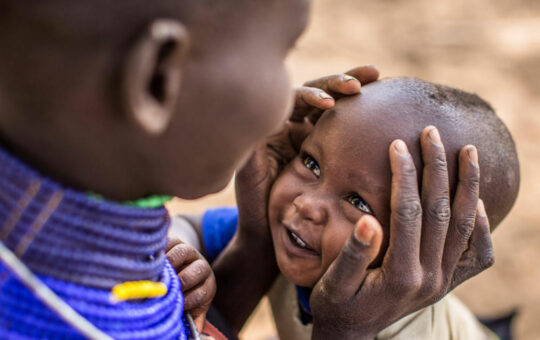Make a Pledge Now for the Early Years
Join our global pledge to support early childhood development for the youngest refugee, displaced and host community children and their caregivers. the ECD team co-leads are happy to support you in creating and submitting your pledge. Whether it is an advocacy pledge, financial, policy or a programmatic pledge. You can fill out the pledge form and submit it here on UNHCR website or download the pledge form on the right to fill it out.
Pledge Description
This pledge aims to engage relevant stakeholders (governments, bilateral and multilateral institutions, INGOs, local NGOs, civil society, and the private sector), in the provision of financial, technical, and material resources to ensure that refugee, displaced and host community children (ages 0-8) and their caregivers in all their diversity, benefit from quality, holistic, integrated, and gender transformative ECD policies and services, aligned with the Nurturing Care Framework for Early Childhood Development. This includes a particular recognition that there are local ECD organisations and experts active in refugee, displaced and host communities ready to provide downstream support to pledges from government or international actors.
Key Outcomes
1- Low and Middle Income Country (LMIC) member states hosting refugees are supported across implicated sectors, and across humanitarian, development, and peace interventions, to ensure that youngest children and their caregivers in all their diversity from refugee, displaced and host communities have access to national and local systems that support quality, holistic, gender transformative and multi-sectoral early childhood services and supports that advance refugee wellbeing, self-reliance, inclusion in national systems, durable solutions, peace, and social cohesion
2- Funders, including bilateral and multilateral donors, invest to support local, national, and community organizations and host governments as well as international organizations, where appropriate, to scale up local ECD solutions. Ensure that humanitarian funding is connected to existing development initiatives through cross-sectoral coordination and accountability, for improved national ECD service delivery.
3- Ensure the development and implementation of a holistic, integrated, and multisectoral national ECD policy that is inclusive of refugee and displaced children, their caregivers, and host communities and to support host Governments establishment of a national ECD coordination platform to support the provision of high-quality ECD programming for refugee and displaced children, their caregivers and host communities.
Background
Early childhood, the period below the age of 8 years, is the most important phase of development in a person’s life (Likhar, Baghel, Patil, 2022). The physical, cognitive, social, emotional, and language development that occurs during early childhood lays the critical foundations for a child’s well-being and resilience, mental and physical health, ability to form and maintain respectful relationships with others, learning and academic progress, and social and economic participation for the rest of their lives.
Leadership
UNHCR Education Alliance Early Childhood Development (ECD) Task Team members; Moving Minds Alliance (MMA) and MMA Donors (including LEGO Foundation, Bernard Van Leer Foundation, Hilton Foundation, Sesame Workshop, and Porticus); other multilateral and philanthropic/private sector donors investing in ECD; International Non-Government Organisations (INGOs).
